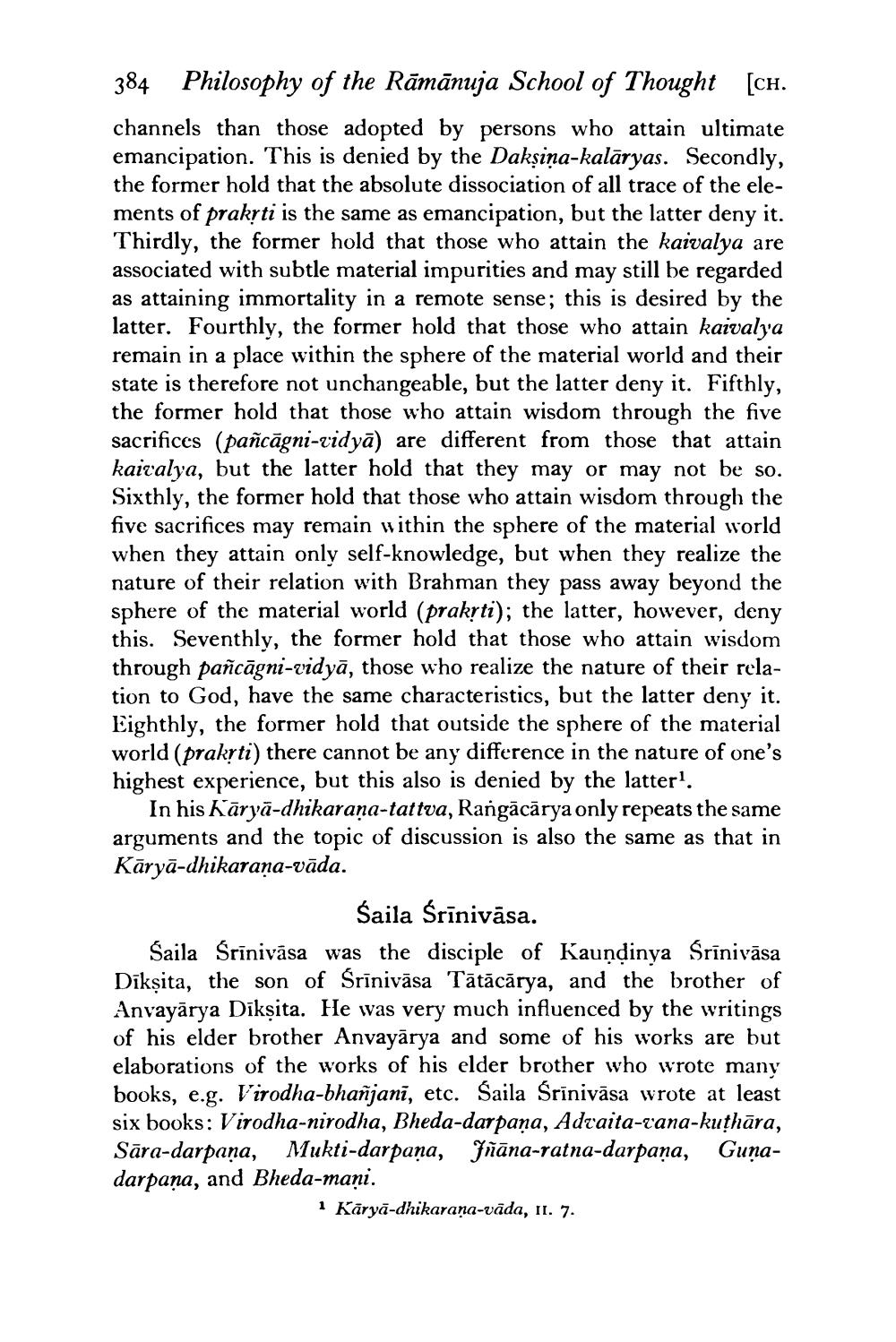________________
384 Philosophy of the Rāmānuja School of Thought [ch. channels than those adopted by persons who attain ultimate emancipation. This is denied by the Dakşiņa-kalāryas. Secondly, the former hold that the absolute dissociation of all trace of the elements of prakrti is the same as emancipation, but the latter deny it. Thirdly, the former hold that those who attain the kaivalya are associated with subtle material impurities and may still be regarded as attaining immortality in a remote sense; this is desired by the latter. Fourthly, the former hold that those who attain kaivalya remain in a place within the sphere of the material world and their state is therefore not unchangeable, but the latter deny it. Fifthly, the former hold that those who attain wisdom through the five sacrifices (pañcāgni-vidyā) are different from those that attain kaivalya, but the latter hold that they may or may not be so. Sixthly, the former hold that those who attain wisdom through the five sacrifices may remain within the sphere of the material world when they attain only self-knowledge, but when they realize the nature of their relation with Brahman they pass away beyond the sphere of the material world (prakrti); the latter, however, deny this. Seventhly, the former hold that those who attain wisdom through pañcāgni-vidyā, those who realize the nature of their relation to God, have the same characteristics, but the latter deny it. Eighthly, the former hold that outside the sphere of the material world (prakrti) there cannot be any difference in the nature of one's highest experience, but this also is denied by the latterl.
In his Kāryā-dhikaraṇa-tattva, Rangācārya only repeats the same arguments and the topic of discussion is also the same as that in Kāryā-dhikarana-vāda.
Śaila Śrīnivāsa. Saila Srinivasa was the disciple of Kauņdinya Srīnivāsa Diksita. the son of Srinivāsa Tātācārya, and the brother of Anvayārya Diksita. He was very much influenced by the writings of his elder brother Anvayārya and some of his works are but elaborations of the works of his elder brother who wrote many books, e.g. Virodha-bhañjanī, etc. Saila Srinivāsa wrote at least six books: Virodha-nirodha, Bheda-darpana, Advaita-rana-kuthāra, Sāra-darpana, Mukti-darpana, jñāna-ratna-darpana, Gunadarpana, and Bheda-mani.
i Kāryā-dhikarana-vāda, Ir. 7.




